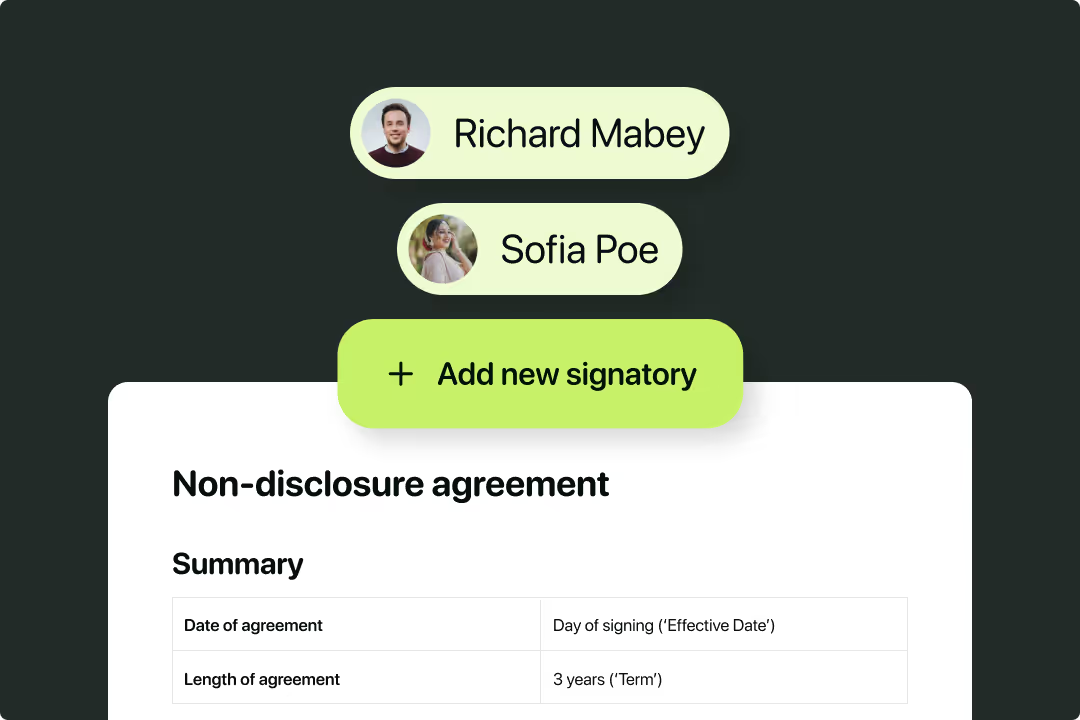Solutions
Customer Support
Resources
Invoices and contracts are incredibly important in the day-to-day running of any business so it's crucial to understand the difference between the two.
What are they, which one are you supposed to use and when and what makes them different? Let’s find out.
An invoice is used to request a payment from a client or customer for a given good or service.
Typically, an invoice lays out an itemised list of products or services you have supplied to your client. It will then list the charges associated with each of these services next to them and a total for all items combined at the bottom.
Though there is no set timeframe for you to send an invoice, there will be a set date by which you expect to receive payment. An invoice may also include information on accepted payment methods, card, cheque or bank transfer.
An invoice could be formatted as:
Nowadays, computer-generated invoices are increasingly common. They are favoured due to their ease, as they can be printed on demand or sent by email to each party.
Automating records allow those creating an invoice to search and sort transactions by number, date, goods or client. This ultimately leads to a smoother invoice creation process.
Technically, no, invoices alone are not legally binding.
Invoices do not equal a legally binding agreement between the business and its client, nor are they considered a legal document. An invoice leaves too much room for manipulation to serve as a legal document.
That said, if an invoice is accompanied by an official contract stating the terms and agreements of the sale or payment, then it could be considered legally binding.

A contract is a legally binding agreement between two or more parties. When signed, this agreement creates a promise that certain rights and obligations will be fulfilled by each party. Put simply, a promise is at the centre of every single contract.
There are a variety of elements of a contract that make it, unlike an invoice, legally enforceable. It’s also worth noting that an agreement does not equal a contract either, which we explore in this explainer.
A contract becomes legally binding the moment all of the contract elements have been met. But before this moment, it is neither enforceable or legally valid.
A common misconception of a contract is that it has to be in writing to be binding. This is not true, in fact it just needs to include the basic elements of a contract to be valid. In fact, verbal contracts can be just as defensible as written ones.
All of this and more can be found in our comprehensive guide to the purpose of a contract.
Need help getting started? Check out our free contract templates ready to use today in Juro.

No, an invoice is not a contract.
An invoice is a request for payment. It is a one-sided document that itemizes and records a transaction between a buyer and a seller.
As opposed to a contract, which is a legally binding agreement between parties where one fulfils an obligation to the other in return for consideration.
The primary difference between a contract and an invoice is that a contract requires two people to enter an agreement. Usually, one party sets out the terms of the agreement and the other accepts.
This leads us on to another key point of difference, signing. As an invoice is solely a record of a transaction and not an agreement, there is no requirement for it to be signed for it to be valid. In contrast, a contract is invalid without a valid wet signature or an eSignature.

In contrast, an invoice is one-sided and created by one party to request payment for goods or services. This makes it a legally enforceable document, but not a legal document.
This also works when you flip the coin, a contract cannot count as an invoice. It can stipulate that paying an invoice is a contractual obligation, but it cannot be an invoice itself. That said, a contract is not necessary if you want to issue somebody with an invoice.
Despite their differences, invoices and contracts are key to running a successful business and should be looked after.
Automating this process, using Juro, can help ensure your contracting procedure is streamlined.
With Juro you can:
Fill out the form below to book a personalized demo and find out more.
Lorem ipsum dolor sit amet, consectetur adipiscing elit. Suspendisse varius enim in eros elementum tristique. Duis cursus, mi quis viverra ornare, eros dolor interdum nulla, ut commodo diam libero vitae erat. Aenean faucibus nibh et justo cursus id rutrum lorem imperdiet. Nunc ut sem vitae risus tristique posuere.

